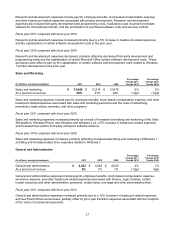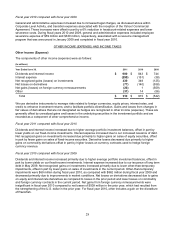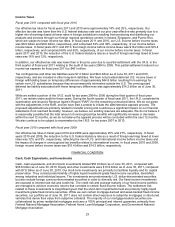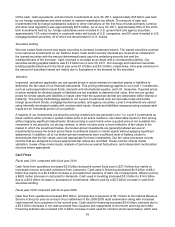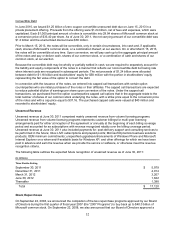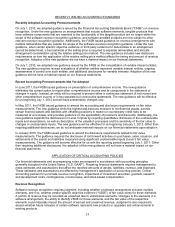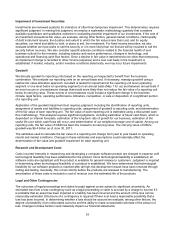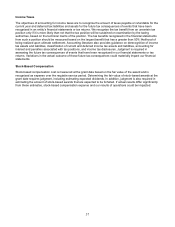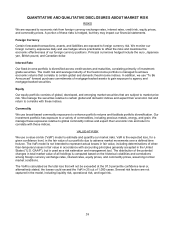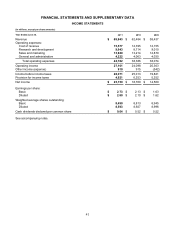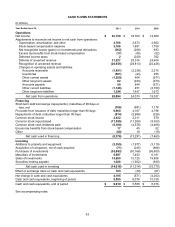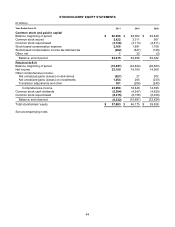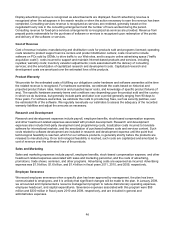Microsoft 2011 Annual Report Download - page 37
Download and view the complete annual report
Please find page 37 of the 2011 Microsoft annual report below. You can navigate through the pages in the report by either clicking on the pages listed below, or by using the keyword search tool below to find specific information within the annual report. 37
Income Taxes
The objectives of accounting for income taxes are to recognize the amount of taxes payable or refundable for the
current year and deferred tax liabilities and assets for the future tax consequences of events that have been
recognized in an entity’s financial statements or tax returns. We recognize the tax benefit from an uncertain tax
position only if it is more likely than not that the tax position will be sustained on examination by the taxing
authorities, based on the technical merits of the position. The tax benefits recognized in the financial statements
from such a position should be measured based on the largest benefit that has a greater than 50% likelihood of
being realized upon ultimate settlement. Accounting literature also provides guidance on derecognition of income
tax assets and liabilities, classification of current and deferred income tax assets and liabilities, accounting for
interest and penalties associated with tax positions, and income tax disclosures. Judgment is required in
assessing the future tax consequences of events that have been recognized in our financial statements or tax
returns. Variations in the actual outcome of these future tax consequences could materially impact our financial
statements.
Stock-Based Compensation
Stock-based compensation cost is measured at the grant date based on the fair value of the award and is
recognized as expense over the requisite service period. Determining the fair value of stock-based awards at the
grant date requires judgment, including estimating expected dividends. In addition, judgment is also required in
estimating the amount of stock-based awards that are expected to be forfeited. If actual results differ significantly
from these estimates, stock-based compensation expense and our results of operations could be impacted.


